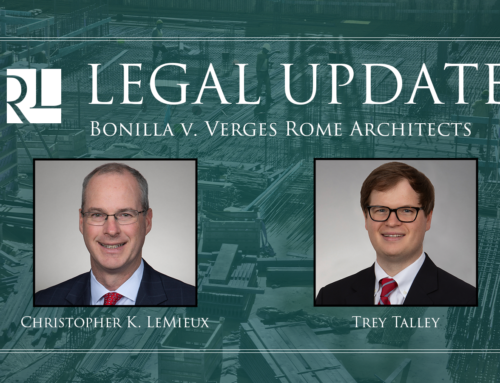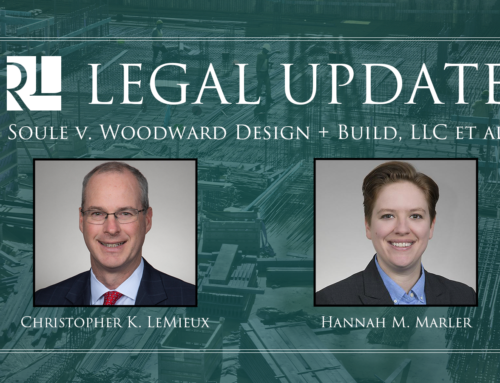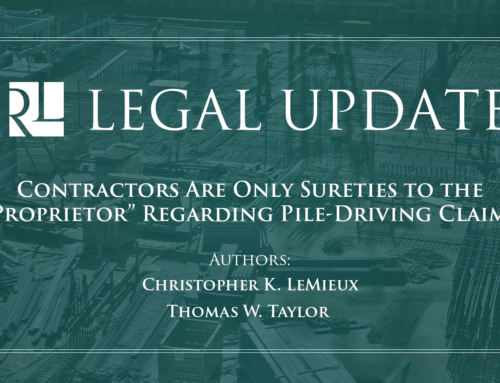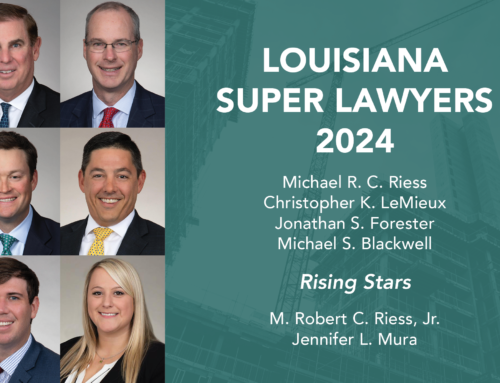Can an unpaid subcontractor assert lien rights against the lessor or owner of property upon which the subcontractor’s work is performed? It depends on who contracted for and benefited from the work. A Louisiana federal court recently ruled that a hauling subcontractor’s claim under the Louisiana Private Works Act (LPWA) could not be asserted against the owner and lessor of property where excess fill was hauled because the work did not inure to their benefit and they did not have actual control over the project. Because the owner and lessor of the property merely consented to or had knowledge of the improvements, they were not subject to the subcontractor’s lien rights under the LPWA.
Siboney Contracting Co. (Siboney) filed suit in the federal court in Lake Charles after it was allegedly undercompensated for hauling excess fill material to the Johnsons’ land. Siboney was hired by Dominion Group LLC (Dominion), the contractor on a project at Cameron LNG, to haul excess fill material from the project site to the Johnsons’ land, where it was used to raise the grade of the tract, thereby improving the land owned by the Johnsons and leased by Black Lake. The Johnsons and Black Lake moved for summary judgment and asked the court to dismiss Siboney’s claims against them under the LPWA, La. R.S. § 9:4802, et seq., as well as a claim for unjust enrichment for the work performed by Siboney.
First, the court ruled that Siboney failed to show that the Johnsons, as the landowner, or Black Lake, as the lessor of the tract, “agreed in writing to the price and work of the contract” as required to hold them liable as non-contracting owners. The court also found there were no “unusual circumstances” to hold these parties liable under the statute. Specifically, there was no basis for holding either the Johnsons or Black Lake liable as “owners” under the LPWA, since the court found that Johnson and Black Lake (a) “merely consented” to Dominion’s work on the land; (b) there were no “unusual circumstances” present, such as a profit-sharing arrangement between Dominion and Black Lake under the lease agreement; and (c) there was no “unusual lease” arrangement whereby the benefit of Siboney’s or Dominion’s work conducted on the land inured to the benefit of the Johnsons or Black Lake. Ultimately, the court held neither the Johnsons nor Black Lake was liable for Dominion’s obligations to Siboney under their subcontract agreement.
Second, the court determined that because Siboney had other available claims against the remaining defendants to its action (i.e., Dominion), summary judgment should be granted to the Johnsons and Black Lake dismissing Siboney’s unjust enrichment claim. The court relied on longstanding Louisiana precedent recognizing that “an unjust enrichment claim will not lie so long as the law provides a remedy for the enrichment against anyone, not only the defendant against whom the unjust enrichment claim is asserted.” As a result, the Johnsons and Blake Lake were dismissed from the case.



